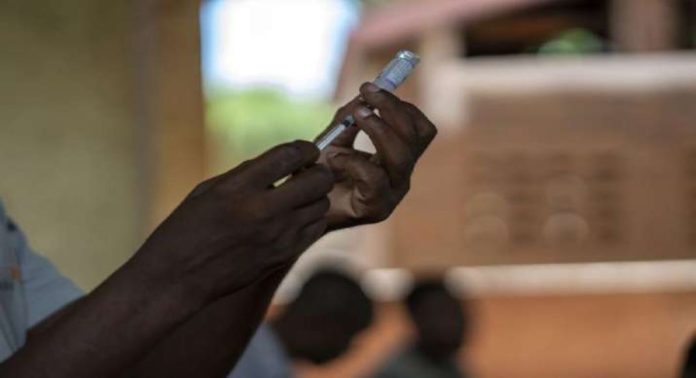World Health Organization (WHO) authorized the world’s first malaria vaccine on Wednesday, recommending its widespread usage among children, particularly in Africa. Officials believe that the action will jumpstart stalling attempts to stop the parasitic disease from spreading.
WHO Director-General Tedros Adhanom Ghebreyesus spoke of “a historic moment” during a meeting of the UN health agency’s vaccine advisory group.
“Today’s recommendation offers a glimmer of hope for the continent which shoulders the heaviest burden of the disease and we expect many more African children to be protected from malaria and grow into healthy adults,” said WHO Africa Director Dr. Matshidiso Moeti.
The WHO stated that their conclusion was based on the findings of current research in Ghana, Kenya, and Malawi, which has followed over 800,000 children since 2019.
Mosquirix, a malaria vaccine produced by GlaxoSmithKline, was first introduced in 1987. While it is the first to be approved, it is only approximately 30% effective, requires up to four doses, and only lasts a few months.
Despite this, scientists believe the vaccine could have a significant impact due to the exceptionally high burden of malaria in Africa, which accounts for the majority of the world’s more than 200 million cases and 400,000 fatalities each year.
Julian Rayner, head of the Cambridge Institute for Medical Research, who was not involved in the WHO decision, remarked, “This is a huge step forward.” “It’s an imperfect vaccine, but it will still stop hundreds of thousands of children from dying.” The vaccine’s impact on the spread of the mosquito-borne disease is still unknown, Rayner said.
“The last two years have given us a very nuanced understanding of how important vaccines are in saving lives and reducing hospitalizations, even if they don’t directly reduce transmission,” he said.
The vaccine, according to Sian Clarke, co-director of the Malaria Centre at the London School of Hygiene and Tropical Medicine, would be a helpful addition to current anti-malaria techniques that may have outlived their usefulness after decades of usage, such as bednets and pesticides.
“In some countries where it gets really hot, children just sleep outside, so they can’t be protected by a bednet,” Clarke noted. “So obviously if they’ve been vaccinated, they will still be protected.”
Clarke went on to say that little progress has been achieved against malaria in the last few years. “If we’re going to decrease the disease burden now, we need something else.”
Apart from it, you can read these articles: Tips to reboot your hair health, Goku, How to Download Free Fire Max on PC, The Shannara Chronicles Season 3, Death Note season 2, 5 Best Indian Curries, KProxy, Kung Fu Panda 4, 7StarHD, 123Mkv, Afdah, FFMovies, Bolly4U, Moviesflix, TrueID, Crystals for Protection, Mewing, How to charge crystals, Knightfall Season 3, Vampire Diaries season 9, Homeland Season 9, Sherlock season 5, Goodyear Viva 3, High sleeper bed, Cash for Cars, F95zone, Aloe Vera Juice, the 100 Season 8, Salvation Season 3, Shadowhunters season 4, Poldark season 6, Good Place season 5, Madison beer net worth, Gravity Falls season 3, Hunter x Hunter season 7, Marvelous Mrs. Maisel Season 4, Bloodborne 2, Derry Girls season 3, highest paid CEO, and, Bhushan Kumar net worth, Knightfall Season 3, you can follow our Entertainment, Health, Technology, and Business category.



















![10 Countries With the Best Healthcare in the World [Statistical Analysis] Countries With the Best Healthcare in the World](https://articleify.com/wp-content/uploads/2025/07/Countries-With-the-Best-Healthcare-in-the-World-1-150x150.jpg)









